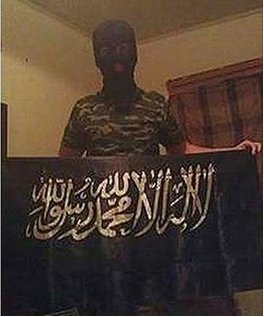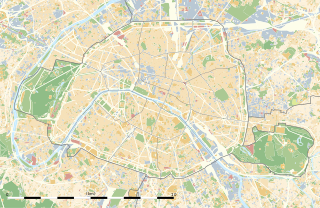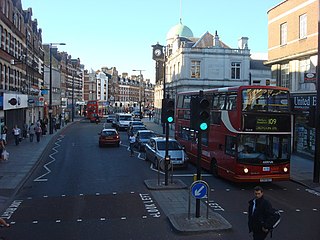Related Research Articles
Terrorism in Australia deals with terrorist acts in Australia as well as steps taken by Australian governments to counter the threat of terrorism. In 2004 the Australian government has identified transnational terrorism as also a threat to Australia and to Australian citizens overseas. Australia has experienced acts of modern terrorism since the 1960s, while the federal parliament, since the 1970s, has enacted legislation seeking to target terrorism.

The 2011 Tel Aviv nightclub attack was a combined vehicular assault and stabbing attack carried out at 01:40 (GMT+2) 29 August 2011 in which a Palestinian attacker stole an Israeli taxi cab and rammed it into a police checkpoint guarding the popular nightclub, Haoman 17, in Tel Aviv which was filled with 2,000 Israeli teenagers. After crashing into the checkpoint, the attacker jumped out of the vehicle and began stabbing people. Four civilians, four police officers, and also perpetrator were injured in the attack. The perpetrator was living illegally in Israel at the time of the attack.

On 23 September 2014, 18-year-old Abdul Numan Haider attacked two counter-terrorism police officers with a knife outside the Victoria Police Endeavour Hills police station located in Endeavour Hills, a suburb of Melbourne, Victoria, Australia. He was then shot dead.

On 21 December 2014, a Muslim man in the French city of Dijon was arrested after a vehicle-ramming attack in which he drove a van into pedestrians in five areas of the city in the space of half an hour. Thirteen people were injured, two of them seriously.
On 20 December 2014, a man in Joué-lès-Tours near the city of Tours in central France entered a police station and attacked officers with a knife, shouting "Allahu Akbar" and injuring three before he was shot and killed. The attack was categorised as a case of religiously inspired terrorism by Europol, and has been reported by Europol as well as mappings by CNN and AFP as inspired by the Islamic State of Iraq and the Levant (ISIL).

On 8 January 2016, two suspected militants, armed with a melee weapon and a signal flare, allegedly arrived by sea and stormed the Bella Vista Hotel in the Red Sea city of Hurghada, Egypt, stabbing two foreign tourists from Austria and one from Sweden. One of the attackers, 21-year-old student Mohammed Hassan Mohammed Mahfouz, was killed by police as he tried to take a woman hostage. The other attacker was injured. The Islamic State of Iraq and the Levant claimed responsibility.
On 13 June 2016, a police officer and his partner, a police secretary, were stabbed to death in their home in Magnanville, France, located about 55 km (34 mi) west of Paris, by a man convicted in 2013 of associating with a group planning terrorist acts. Amaq News Agency, an online outlet said to be sponsored by the Islamic State of Iraq and the Levant (ISIL), said that a source had claimed that ISIL was behind the attack, an assertion that was later validated.
On 3 August 2016, a mass stabbing occurred in Russell Square, London. Six people were stabbed, one fatally, before a suspect, identified as Zakaria Bulhan, was apprehended by police and charged with murder and attempted murder. The media initially linked the stabbing to terrorism, but later shifted its focus to possible mental disorders.
On 5 October 2016, three police officers were attacked by a man wielding a machete in the Schaerbeek neighborhood of Brussels, Belgium. Two of them suffered stab wounds, while the third was physically assaulted but otherwise uninjured. The suspected assailant, a Belgian citizen named Hicham Diop, was apprehended and charged with attempted terrorism-related murder and participating in a terrorist group.
On 3 February 2015, three soldiers, guarding a Jewish community center in Nice, France, were attacked with a knife by Moussa Coulibaly, a lone-wolf terrorist.
Stabbing attacks became an increasingly common form of terrorist attack on random civilians in the 21st century, in particular during the 2010s and 2020s.
On 6–7 April 2017, two teenage boys aged 15 and 16 went on a rampage in Queanbeyan, NSW, Australia, first stabbing a service station attendant to death, then violently attacking four people in a spree that continued for several hours. The attacks were investigated by Australia's Joint Counter Terrorism Task Force as a possible terrorism-related crime. On 1 May 2020 both males were sentenced. The older received a jail term of 35 years and 6 months, while the younger received 18 years and 4 months.

On 3 June 2017, a terrorist vehicle-ramming and stabbing took place in London, England. A van was deliberately driven into pedestrians on London Bridge, and then crashed on the south bank of the River Thames. Its three occupants then ran to the nearby Borough Market area and began stabbing people in and around restaurants and pubs. They were shot dead by City of London Police officers, and were found to be wearing fake explosive vests. Eight people were killed and 48 were injured, including members of the public and four unarmed police officers who attempted to stop the assailants.
The Hanover stabbing that occurred on 26 February 2016 was a terrorist stabbing of a police officer in Hanover, Germany, by a 15-year-old girl. It was the first reported attack by an ISIS sympathiser in Germany.
This article covers attacks and activity of terrorism in Belgium.

The 2017 Turku attack took place on 18 August 2017 at around 16:02–16:05 (UTC+3) when 10 people were stabbed in central Turku, Southwest Finland. Two women were killed in the attack and eight people sustained injuries.

On 12 May 2018, a 21-year-old Chechnya-born French citizen, armed with a knife, killed one pedestrian and injured four others near the Palais Garnier, the opera house in Paris, France, before being fatally shot by police. The knifings were in the area of Rue Saint-Augustin and Passage Choiseul. French President Emmanuel Macron said France had "paid once again the price of blood but will not cede an inch to the enemies of freedom." The suspect, identified as Khamzat Azimov, had been on a counter-terrorism watchlist since 2016. Amaq News Agency posted a video of a hooded person pledging allegiance to Islamic State of Iraq and the Levant (ISIL) leader Abu Bakr al-Baghdadi, claimed to be the attacker. Europol classified the attack as jihadist terrorism.
On 9 November 2018, one male attacker, Hassan Khalif Shire Ali, set his car on fire and stabbed three people at Bourke Street in the Melbourne city centre, Australia, before being fatally shot by Victoria Police. Of the three victims stabbed by Ali, one of the stabbed victims died at the scene while the other two were treated by paramedics and taken to hospital. On 10 November, the Victorian Premier Daniel Andrews confirmed that the attack was "an act of terror" and is being treated as such by counter-terrorism police from both the Victoria Police and the Australian Federal Police.

On 2 February 2020 two people were stabbed in Streatham, London in what police termed a terrorist incident. The attacker, Sudesh Amman, was shot dead by the police. A nearby woman was slightly injured by broken glass as a result. At the time Amman was under active counter-terrorism surveillance, after having recently being released from prison on licence; he had been convicted in 2018 for disseminating terrorist material. Following the attack, the British government introduced the Terrorist Offenders Bill, a piece of emergency legislation intended to prevent those convicted of terrorist offences from being released early from prison.
References
- 1 2 Banks, Laura (12 September 2016). "Minto terror attack: Islamic radical Ihsas Khan had a plan to 'kill an Aussie', police will allege". The Daily Telegraph. Retrieved 9 February 2017.
- ↑ http://www.abc.net.au/news/2016-09-14/man-charged-with-committing-sydney-act-of-terrorism-refused-bail/7843188
- 1 2 McKirdy, Euan (12 September 2016). "Man arrested in Sydney for 'ISIS-inspired' attack". CNN. Retrieved 8 February 2017.
- 1 2 3 Gleeson, Ashleigh (11 September 2016). "Minto stabbing: Man charged with Sydney terror attack and attempted murder". The Daily Telegraph. Retrieved 8 February 2017.
- 1 2 3 Meley, Paul (12 September 2016). "Lone-wolf terror suspect 'inspired' by Curtis Cheng killing". The Australian . Retrieved 9 February 2017.
- ↑ Mitchell, Georgina (19 September 2016). "Wayne Greenhalgh speaks about 'frightening' Minto stabbing ordeal for first time". Sydney Morning Herald. Retrieved 8 February 2017.
- ↑ Griffiths, Meredith (30 April 2018). "Sydney terrorism accused Ihsas Khan wanted police to kill him, court hears". ABC. Retrieved 14 November 2018.
- 1 2 Vernon, Jackson (24 November 2016). "Terrorism-inspired stabbing: Ihsas Khan made 'extensive admissions' to police, court hears". Australian Broadcasting Corporation . Retrieved 8 February 2017.
- ↑ Scheikowski, Margaret (5 June 2019). "Ihsas Khan: Minto stabbing terror attacker jailed". News.com.au . AAP. Retrieved 24 September 2019.
- ↑ McClellan, Ben (7 February 2017). "Donald Trump: White House lists 'unreported Australian terror attacks'". The Daily Telegraph. Retrieved 8 February 2017.
- ↑ http://www.theaustralian.com.au/in-depth/us-politics/donald-trump-slips-up-on-aussie-attack/news-story/90df90112ed60ca2d59308d99ebe4629